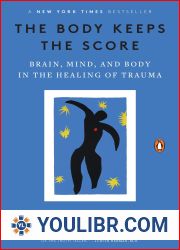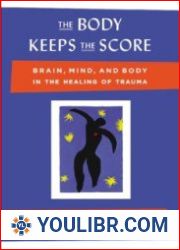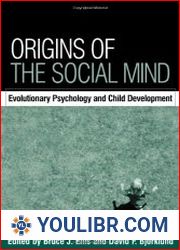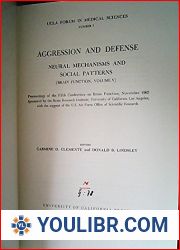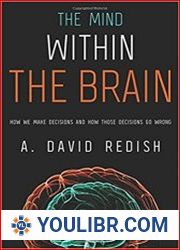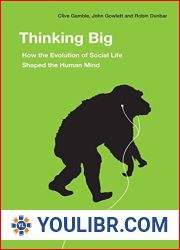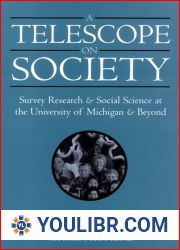
BOOKS - Social Neuroscience: Brain, Mind, and Society

Social Neuroscience: Brain, Mind, and Society
Author: Russell K. Schutt
Year: June 9, 2015
Format: PDF
File size: PDF 3.7 MB
Language: English

Year: June 9, 2015
Format: PDF
File size: PDF 3.7 MB
Language: English

Human beings evolved in the company of others and flourished in proportion to their positive social ties. To understand the human brain, we must situate its biology in the wider context of society. To understand society, we must also consider how the brains and minds of individuals shape interactions with other human beings. Social neuroscience offers a comprehensive new framework for studying the brain, human development, and human behavior. In this book, leading researchers in the fields of neurobiology, psychiatry, psychology, and sociology elucidate the connections between brain biology and the brain's functioning in the social world, providing a state-of-the-art interdisciplinary explanation of how humans think and act, as well as the ways we define and treat pathological behavior. Synthesizing the insights and perspectives of these experts, social neuroscience examines how neural processes make the brain sensitive to social experience, how cognition shapes social behavior, and how social networks create a range of responses among different individuals to the same environmental stimuli. The mutually reinforcing connections between brain, mind, and society have profound implications for human health, from the emotionally damaging effects of severe social deprivation to the neurological impact of parental abuse and neighborhood violence. The authors explore these connections with special focus on mental illnesses, including schizophrenia, a disorder characterized by marked social deficits, in which a neurological basis is now well established. The book "Social Neuroscience: Brain, Mind, and Society" provides an interdisciplinary approach to understanding the intricate relationships between the brain, mind, and society.
Люди развивались в обществе других и процветали пропорционально их позитивным социальным связям. Чтобы понять человеческий мозг, мы должны поместить его биологию в более широкий контекст общества. Чтобы понять общество, мы также должны учитывать, как мозг и разум людей формируют взаимодействие с другими людьми. Социальная нейробиология предлагает всеобъемлющую новую основу для изучения мозга, развития человека и поведения человека. В этой книге ведущие исследователи в области нейробиологии, психиатрии, психологии и социологии выясняют связи между биологией мозга и функционированием мозга в социальном мире, предоставляя современное междисциплинарное объяснение того, как люди думают и действуют, а также способы, которыми мы определяем и лечим патологическое поведение. Синтезируя идеи и перспективы этих экспертов, социальная нейробиология исследует, как нейронные процессы делают мозг чувствительным к социальному опыту, как познание формирует социальное поведение и как социальные сети создают различные реакции среди разных людей на одни и те же стимулы окружающей среды. Взаимоукрепляющие связи между мозгом, разумом и обществом имеют глубокие последствия для здоровья человека, от эмоционально разрушительных последствий тяжелой социальной депривации до неврологических последствий жестокого обращения с родителями и насилия по соседству. Авторы исследуют эти связи с особым акцентом на психические заболевания, включая шизофрению, расстройство, характеризующееся выраженным социальным дефицитом, при котором неврологическая основа в настоящее время хорошо известна. Книга «Social Neuroscience: Brain, Mind, and Society» обеспечивает междисциплинарный подход к пониманию сложных взаимоотношений между мозгом, разумом и обществом.
s gens ont évolué dans la société des autres et ont prospéré en proportion de leurs liens sociaux positifs. Pour comprendre le cerveau humain, nous devons placer sa biologie dans le contexte plus large de la société. Pour comprendre la société, nous devons également tenir compte de la façon dont le cerveau et l'esprit des gens façonnent les interactions avec les autres. s neurosciences sociales offrent un nouveau cadre complet pour l'étude du cerveau, du développement humain et du comportement humain. Dans ce livre, des chercheurs de premier plan dans les domaines de la neuroscience, de la psychiatrie, de la psychologie et de la sociologie découvrent les liens entre la biologie cérébrale et le fonctionnement du cerveau dans le monde social en fournissant une explication interdisciplinaire moderne de la façon dont les gens pensent et agissent, ainsi que des façons dont nous déterminons et traitons les comportements pathologiques. En synthétisant les idées et les perspectives de ces experts, la neuroscience sociale explore comment les processus neuronaux rendent le cerveau sensible à l'expérience sociale, comment la cognition façonne le comportement social et comment les réseaux sociaux créent différentes réactions entre les différentes personnes aux mêmes stimuli environnementaux. s liens qui se renforcent mutuellement entre le cerveau, l'esprit et la société ont des conséquences profondes sur la santé humaine, allant des effets émotionnellement destructeurs de la privation sociale sévère aux conséquences neurologiques de la maltraitance parentale et de la violence de voisinage. s auteurs étudient ces liens en mettant particulièrement l'accent sur les maladies mentales, y compris la schizophrénie, un trouble caractérisé par un déficit social exprimé dans lequel la base neurologique est maintenant bien connue. livre Social Neuroscience : Brain, Mind, and Society propose une approche interdisciplinaire de la compréhension des relations complexes entre le cerveau, l'esprit et la société.
personas se desarrollaron en la sociedad de otros y prosperaron proporcionalmente a sus vínculos sociales positivos. Para entender el cerebro humano, debemos situar su biología en el contexto más amplio de la sociedad. Para entender la sociedad, también debemos considerar cómo el cerebro y la mente de las personas forman la interacción con otras personas. La neurociencia social ofrece un nuevo marco integral para el estudio del cerebro, el desarrollo humano y el comportamiento humano. En este libro, investigadores líderes en neurociencia, psiquiatría, psicología y sociología investigan las conexiones entre la biología cerebral y el funcionamiento del cerebro en el mundo social, proporcionando una explicación interdisciplinaria moderna de cómo las personas piensan y actúan, así como las formas en que definimos y tratamos el comportamiento patológico. ntetizando las ideas y perspectivas de estos expertos, la neurociencia social explora cómo los procesos neuronales hacen que el cerebro sea sensible a la experiencia social, cómo la cognición moldea el comportamiento social y cómo las redes sociales crean diferentes respuestas entre diferentes personas a los mismos estímulos ambientales. vínculos que se refuerzan mutuamente entre el cerebro, la mente y la sociedad tienen profundas consecuencias para la salud humana, desde los efectos emocionalmente devastadores de la grave privación social hasta las consecuencias neurológicas del maltrato de los padres y la violencia en el vecindario. autores investigan estas conexiones con un énfasis especial en las enfermedades mentales, incluyendo la esquizofrenia, un trastorno caracterizado por un déficit social pronunciado en el que la base neurológica es ahora bien conocida. libro «Social Neuroscience: Brain, Mind, and Society» proporciona un enfoque interdisciplinario para entender las complejas relaciones entre el cerebro, la mente y la sociedad.
As pessoas evoluíram na sociedade dos outros e prosperaram proporcionalmente aos seus laços sociais positivos. Para compreender o cérebro humano, temos de colocar a sua biologia num contexto mais amplo da sociedade. Para compreender a sociedade, também devemos considerar como o cérebro e a mente das pessoas formam a interação com outras pessoas. A neurociência social oferece uma nova base abrangente para o estudo do cérebro, desenvolvimento humano e comportamento humano. Neste livro, os principais pesquisadores em neurociência, psiquiatria, psicologia e sociologia investigam as conexões entre a biologia cerebral e o funcionamento do cérebro no mundo social, fornecendo uma explicação moderna interdisciplinar da forma como as pessoas pensam e agem, assim como as formas que definimos e tratamos o comportamento patológico. Ao sintetizar as ideias e perspectivas destes especialistas, a neurociência social investiga como os processos neurais tornam o cérebro sensível à experiência social, como o conhecimento forma o comportamento social e como as redes sociais criam reações diferentes entre as diferentes pessoas aos mesmos estímulos ambientais. As interconexões entre o cérebro, a mente e a sociedade têm implicações profundas para a saúde humana, desde os efeitos emocionalmente devastadores da deprivação social severa até os efeitos neurológicos do abuso dos pais e da violência nas proximidades. Os autores investigam essas ligações com especial ênfase em doenças mentais, incluindo esquizofrenia, um distúrbio caracterizado por déficits sociais expressivos, no qual a base neurológica é agora bem conhecida. O livro «Social Neuroscience: Brain, Mind, and Society» oferece uma abordagem interdisciplinar da compreensão das complexas relações entre o cérebro, a mente e a sociedade.
persone si sono sviluppate nella società degli altri e hanno fiorito in proporzione ai loro legami sociali positivi. Per capire il cervello umano, dobbiamo inserire la sua biologia in un contesto più ampio della società. Per comprendere la società, dobbiamo anche considerare il modo in cui il cervello e la mente delle persone formano l'interazione con gli altri. La neuroscienza sociale offre una nuova base completa per studiare il cervello, lo sviluppo umano e il comportamento umano. In questo libro, i principali ricercatori di neuroscienze, psichiatria, psicologia e sociologia stanno indagando sui legami tra la biologia cerebrale e il funzionamento del cervello nel mondo sociale, fornendo una spiegazione moderna e multidisciplinare di come le persone pensano e agiscono e dei modi in cui definiamo e curiamo i comportamenti patologici. ntetizzando le idee e le prospettive di questi esperti, la neuroscienza sociale sta esplorando come i processi neurali rendano il cervello sensibile all'esperienza sociale, come la conoscenza forma il comportamento sociale e come i social media creano reazioni diverse tra persone diverse agli stessi stimoli ambientali. I legami reciproci tra cervello, mente e società hanno profonde ripercussioni sulla salute umana, dagli effetti emotivamente devastanti della grave deprivazione sociale alle conseguenze neurologiche del maltrattamento dei genitori e della violenza nelle vicinanze. Gli autori indagano su questi legami con particolare attenzione alle malattie mentali, inclusa la schizofrenia, un disturbo caratterizzato da un pronunciato deficit sociale, in cui la base neurologica è ormai ben nota. Il libro «Social Neuroscience: Brain, Mind, and Society» fornisce un approccio interdisciplinare alla comprensione delle complesse relazioni tra cervello, mente e società.
Die Menschen haben sich in der Gesellschaft anderer entwickelt und im Verhältnis zu ihren positiven sozialen Bindungen gediehen. Um das menschliche Gehirn zu verstehen, müssen wir seine Biologie in den größeren Kontext der Gesellschaft stellen. Um die Gesellschaft zu verstehen, müssen wir auch berücksichtigen, wie das Gehirn und der Geist der Menschen die Interaktion mit anderen Menschen gestalten. Die soziale Neurowissenschaft bietet eine umfassende neue Grundlage für die Erforschung des Gehirns, der menschlichen Entwicklung und des menschlichen Verhaltens. In diesem Buch untersuchen führende Forscher aus den Bereichen Neurowissenschaften, Psychiatrie, Psychologie und Soziologie die Zusammenhänge zwischen Gehirnbiologie und Gehirnfunktion in der sozialen Welt und liefern eine moderne interdisziplinäre Erklärung dafür, wie Menschen denken und handeln und wie wir pathologisches Verhalten definieren und behandeln. Durch die Synthese der Ideen und Perspektiven dieser Experten untersucht die soziale Neurowissenschaft, wie neuronale Prozesse das Gehirn für soziale Erfahrungen sensibilisieren, wie Kognition soziales Verhalten prägt und wie soziale Medien unterschiedliche Reaktionen zwischen verschiedenen Menschen auf die gleichen Umweltreize hervorrufen. Die sich gegenseitig verstärkenden Verbindungen zwischen Gehirn, Geist und Gesellschaft haben tiefgreifende Auswirkungen auf die menschliche Gesundheit, von den emotional verheerenden Folgen schwerer sozialer Deprivation bis hin zu den neurologischen Folgen von elterlichem Missbrauch und Gewalt in der Nachbarschaft. Die Autoren untersuchen diese Zusammenhänge mit besonderem Augenmerk auf psychische Erkrankungen, einschließlich Schizophrenie, eine Störung, die durch ausgeprägte soziale Defizite gekennzeichnet ist, bei denen die neurologische Basis inzwischen gut bekannt ist. Das Buch „Social Neuroscience: Brain, Mind, and Society“ bietet einen interdisziplinären Ansatz zum Verständnis der komplexen Beziehung zwischen Gehirn, Geist und Gesellschaft.
Ludzie rozwijali się w społeczeństwie innych i kwitli proporcjonalnie do ich pozytywnych więzi społecznych. Aby zrozumieć ludzki mózg, musimy umieścić jego biologię w szerszym kontekście społeczeństwa. Aby zrozumieć społeczeństwo, musimy również rozważyć, jak mózgi i umysły ludzi kształtują interakcje z innymi ludźmi. Neurobiologia społeczna oferuje kompleksowe nowe ramy do badania mózgu, rozwoju człowieka i ludzkiego zachowania. W książce tej czołowi badacze neurobiologii, psychiatrii, psychologii i socjologii wyjaśniają powiązania między biologią mózgu a funkcjonowaniem mózgu w świecie społecznym, dostarczając najnowocześniejszego interdyscyplinarnego wyjaśnienia sposobu myślenia i działania ludzi oraz sposobów definiowania i leczenia patologicznych zachowań. Syntetyzując spostrzeżenia i perspektywy tych ekspertów, neurobiologia społeczna bada, jak procesy neuronowe sprawiają, że mózg jest wrażliwy na doświadczenie społeczne, jak poznanie kształtuje zachowanie społeczne i jak sieci społecznościowe tworzą różne reakcje różnych osób na te same bodźce środowiskowe. Wzajemnie wzmacniające się powiązania między mózgiem, umysłem i społeczeństwem mają głębokie konsekwencje dla zdrowia ludzkiego, począwszy od emocjonalnie druzgocących skutków poważnej deprywacji społecznej do neurologicznych skutków nadużyć rodzicielskich i przemocy w sąsiedztwie. Autorzy badają te powiązania ze szczególnym uwzględnieniem chorób psychicznych, w tym schizofrenii, zaburzenia charakteryzujące się znacznymi deficytami społecznymi, w których podstawa neurologiczna jest obecnie dobrze ugruntowana. Książka „Neurobiologia społeczna: mózg, umysł i społeczeństwo” zapewnia interdyscyplinarne podejście do zrozumienia złożonych relacji między mózgiem, umysłem i społeczeństwem.
אנשים התפתחו בחברה של אחרים ושגשגו ביחס לקשרים החברתיים החיוביים שלהם. כדי להבין את המוח האנושי, עלינו למקם את הביולוגיה שלו בהקשר הרחב יותר של החברה. כדי להבין את החברה, עלינו גם לשקול כיצד מוחם ומוחם של אנשים מעצבים אינטראקציות עם אנשים אחרים. מדעי המוח החברתיים מציעים מסגרת חדשה ומקיפה לחקר המוח, ההתפתחות האנושית וההתנהגות האנושית. בספר זה, חוקרים מובילים במדעי המוח, פסיכיאטריה, פסיכולוגיה וסוציולוגיה מגלים את הקשר בין ביולוגיה של המוח לתפקוד המוח בעולם החברתי, ומספקים הסבר חדשני בין-תחומי על אופן החשיבה והפעולה של אנשים, ועל הדרכים שבהן אנו מגדירים ומטפלים בהתנהגות פתולוגית. סינתזת התובנות והפרספקטיבות של מומחים אלה, מדעי המוח החברתיים חוקרים כיצד תהליכים עצביים הופכים את המוח לרגיש לחוויה חברתית, כיצד הקוגניציה מעצבת התנהגות חברתית, וכיצד רשתות חברתיות יוצרות תגובות שונות בקרב אנשים שונים לאותו גירויים סביבתיים. לחיזוק הדדי של הקשרים בין מוח, מוח וחברה יש השלכות עמוקות על בריאות האדם, מההשפעות ההרסניות מבחינה רגשית של חסך חברתי חמור המחברים חוקרים קשרים אלה עם התמקדות מסוימת במחלות נפש, כולל סכיזופרניה, הפרעה המאופיינת בגירעונות חברתיים מסומנים, שבהם הבסיס הנוירולוגי מבוסס היטב. הספר Social Neuroscience: Brain, Mind and Society מספק גישה בין-תחומית להבנת היחסים המורכבים בין המוח, המוח והחברה.''
İnsanlar başkalarının toplumunda gelişti ve olumlu sosyal bağlarıyla orantılı olarak gelişti. İnsan beynini anlamak için, biyolojisini toplumun daha geniş bağlamına yerleştirmeliyiz. Toplumu anlamak için, insanların beyinlerinin ve zihinlerinin diğer insanlarla etkileşimleri nasıl şekillendirdiğini de düşünmeliyiz. Sosyal sinirbilim, beyin, insan gelişimi ve insan davranışını incelemek için kapsamlı bir yeni çerçeve sunar. Bu kitapta, nörobilim, psikiyatri, psikoloji ve sosyoloji alanındaki önde gelen araştırmacılar, sosyal dünyadaki beyin biyolojisi ve beyin fonksiyonu arasındaki bağlantıları açıklayarak, insanların nasıl düşündüklerine ve nasıl davrandıklarına ve patolojik davranışları nasıl tanımladığımıza ve tedavi ettiğimize dair en son disiplinlerarası bir açıklama sunmaktadır. Bu uzmanların görüşlerini ve bakış açılarını sentezleyen sosyal sinirbilim, nöral süreçlerin beyni sosyal deneyime nasıl duyarlı hale getirdiğini, bilişin sosyal davranışı nasıl şekillendirdiğini ve sosyal ağların farklı bireyler arasında aynı çevresel uyaranlara nasıl farklı tepkiler yarattığını araştırıyor. Beyin, zihin ve toplum arasındaki karşılıklı olarak güçlendirici bağlantılar, şiddetli sosyal yoksunluğun duygusal olarak yıkıcı etkilerinden ebeveyn istismarı ve mahalle şiddetinin nörolojik etkilerine kadar insan sağlığı için derin etkilere sahiptir. Yazarlar, bu bağlantıları, nörolojik temelin artık iyi kurulmuş olduğu belirgin sosyal eksikliklerle karakterize edilen bir bozukluk olan şizofreni de dahil olmak üzere zihinsel hastalıklara odaklanarak araştırıyorlar. "Sosyal nirbilim: Beyin, Zihin ve Toplum" kitabı, beyin, zihin ve toplum arasındaki karmaşık ilişkileri anlamak için disiplinlerarası bir yaklaşım sunmaktadır.
تطور الناس في مجتمع الآخرين وازدهروا بما يتناسب مع روابطهم الاجتماعية الإيجابية. لفهم الدماغ البشري، يجب أن نضع بيولوجيته في السياق الأوسع للمجتمع. لفهم المجتمع، يجب علينا أيضًا التفكير في كيفية تشكيل أدمغة وعقول الناس للتفاعلات مع الآخرين. يقدم علم الأعصاب الاجتماعي إطارًا جديدًا شاملاً لدراسة الدماغ والتنمية البشرية والسلوك البشري. في هذا الكتاب، يوضح الباحثون البارزون في علم الأعصاب والطب النفسي وعلم النفس وعلم الاجتماع الروابط بين بيولوجيا الدماغ ووظيفة الدماغ في العالم الاجتماعي، مما يوفر تفسيرًا متعدد التخصصات على أحدث طراز لكيفية تفكير الناس وتصرفهم، والطرق التي نحدد بها السلوك المرضي ونعالجه. من خلال توليف رؤى ووجهات نظر هؤلاء الخبراء، يستكشف علم الأعصاب الاجتماعي كيف تجعل العمليات العصبية الدماغ حساسًا للتجربة الاجتماعية، وكيف يشكل الإدراك السلوك الاجتماعي، وكيف تخلق الشبكات الاجتماعية استجابات مختلفة بين الأفراد المختلفين لنفس المحفزات البيئية. الروابط المعززة لبعضها البعض بين الدماغ والعقل والمجتمع لها آثار عميقة على صحة الإنسان، من الآثار المدمرة عاطفياً للحرمان الاجتماعي الشديد إلى الآثار العصبية لإساءة معاملة الوالدين وعنف الأحياء. يستكشف المؤلفون هذه الروابط مع التركيز بشكل خاص على المرض العقلي، بما في ذلك الفصام، وهو اضطراب يتميز بعجز اجتماعي ملحوظ أصبح فيه الأساس العصبي راسخًا الآن. يقدم كتاب «علم الأعصاب الاجتماعي: الدماغ والعقل والمجتمع» نهجًا متعدد التخصصات لفهم العلاقات المعقدة بين الدماغ والعقل والمجتمع.
사람들은 다른 사람들의 사회에서 발전하여 긍정적 인 사회적 유대에 비례하여 번성했습니다. 인간의 두뇌를 이해하려면 생물학을 사회의 더 넓은 맥락에 두어야합니다. 사회를 이해하려면 사람들의 두뇌와 마음이 어떻게 다른 사람들과의 상호 작용을 형성하는지 고려해야합니 사회 신경 과학은 뇌, 인간 발달 및 인간 행동을 연구하기위한 포괄적 인 새로운 틀을 제공합니다. 이 책에서 신경 과학, 정신과, 심리학 및 사회학의 주요 연구자들은 사회 세계에서 뇌 생물학과 뇌 기능 사이의 연관성을 설명하여 사람들이 어떻게 생각하고 행동하는지, 병리학 적 행동을 정의하고 치료하는 방법. 이러한 전문가의 통찰력과 관점을 종합하여 사회 신경 과학은 신경 과정이 뇌를 사회적 경험에 민감하게 만드는 방법, 인지가 사회적 행동을 형성하는 방법 및 소셜 네트워크가 동일한 환경 자극에 대해 다른 개인간에 다른 반응을 만드는 방법을 탐구합니다. 뇌, 정신 및 사회 사이의 상호 강화 연결은 심각한 사회적 박탈의 정서적 파괴적인 영향에서부터 부모의 학대 및 이웃 폭력의 신경 학적 영향에 이르기까지 인간 건강에 중대한 영향을 미칩니다. 저자들은 정신 분열증을 포함한 정신 질환에 특히 중점을 둔 이러한 연관성을 탐구합니다. 정신 분열증은 신경 학적 근거가 잘 확립되어있는 현저한 사회적 결손을 특징으로하는 장애입니다. "Social Neuroscience: Brain, Mind, and Society" 라는 책은 뇌, 마음, 사회 사이의 복잡한 관계를 이해하기위한 학제 간 접근 방식을 제공합니다.
人々は他者の社会で発展し、彼らの肯定的な社会的関係に比例して繁栄した。人間の脳を理解するためには、その生物学を社会のより広い文脈に置いていかなければなりません。社会を理解するためには、人の脳と心が他の人との相互作用をどのように形成するかも考慮しなければなりません。社会神経科学は、脳、人間の発達、人間の行動を研究するための包括的な新しい枠組みを提供します。本書では、神経科学、精神医学、心理学、社会学の主要な研究者が、社会の脳生物学と脳機能の関係を解明し、人々の考え方と行動、病理学的行動の定義と治療方法についての最先端の学際的な説明を提供しています。これらの専門家の洞察と視点を合成し、社会神経科学は、神経プロセスがどのように脳を社会的経験に敏感にさせるか、認知が社会的行動をどのように形成するか、そしてソーシャルネットワークがどのようにして同じ環境刺激に対する異なる個人間の異なる応答を作成するかを探求します。脳、心、社会との間の相互強化的なつながりは、深刻な社会的剥奪の感情的に壊滅的な影響から、親の虐待や近隣の暴力の神経学的な影響まで、人間の健康に大きな影響を与えます。著者たちは、統合失調症を含む精神疾患に特に焦点を当て、神経学的基礎が確立されている顕著な社会的欠陥を特徴とする疾患との関連を探っている。本「社会神経科学:脳、心、社会」は、脳、心、社会の複雑な関係を理解するための学際的なアプローチを提供します。
人們在他人社會中發展,並與其積極的社會聯系成比例地繁榮起來。要了解人腦,我們必須將其生物學置於更廣泛的社會背景下。要了解社會,我們還必須考慮人們的大腦和思想如何塑造與其他人的互動。社會神經科學為大腦研究,人類發展和人類行為提供了全面的新框架。在這本書中,神經科學,精神病學,心理學和社會學領域的領先研究人員闡明了大腦生物學與社會世界中的大腦功能之間的聯系,為人們如何思考和行動以及我們定義和治療病理行為的方式提供了現代的跨學科解釋。通過綜合這些專家的想法和觀點,社會神經科學研究了神經過程如何使大腦對社會體驗敏感,認知如何塑造社會行為,以及社交媒體如何對相同的環境刺激在不同的人之間產生不同的反應。大腦,思想和社會之間的相互加強的聯系對人類健康產生了深遠的影響,從嚴重的社會剝奪的情感破壞性後果到虐待父母和鄰裏暴力的神經系統後果。作者特別關註精神疾病,包括精神分裂癥,這種疾病的特征是明顯的社會缺陷,其中神經系統基礎現在是眾所周知的。該書《社會神經科學:大腦,心靈和社會》提供了一種跨學科的方法來理解大腦,思想和社會之間的復雜關系。












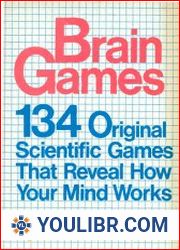
![Grammar in Mind and Brain: Explorations in Cognitive Syntax (Cognitive Linguistics Research [CLR], 2) Grammar in Mind and Brain: Explorations in Cognitive Syntax (Cognitive Linguistics Research [CLR], 2)](https://youlibr.com/img/5/578743_oc.jpg)


